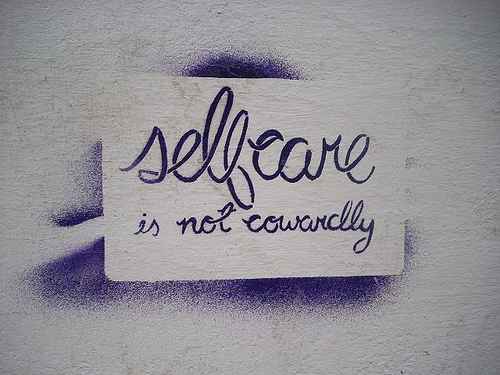No matter how hard you fight for social justice, it seems like there’s always more to do. Living your politics, participating in rallies, being an ally, keeping up relationships with family and friends, going to school or work, it all takes a toll on you.
Activists tend to take on too much and can burn out entirely. That’s why self care is such an important part of activism.
This guide will explain:
What is self care
Why bother
What you can do
What’s self care?
Self care means taking the time to nurture, comfort and support yourself. It can be a week off from responsibility or a moment you take to meditate for ten minutes. A lot of activists feel the pressure to say yes to anything thrown at them. While being an active participant comes with the territory, activism doesn’t come with job descriptions. It’s easy to take on way more work than you imagined because you support the cause and it needs to be done. But it comes at a personal cost.
Why bother?
Burn out happens when people reach their limit and simply are too emotionally or physically (or both) exhausted to continue to contribute. It’s a breaking point that shouldn’t be reached. Activism itself isn’t selfless, people are involved because they have an interest in a better world, so self care shouldn’t be seen as being selfish. Activists also experience a certain amount of trauma through their actions, often witnessing violence, hatred and high pressure situations first hand.
Organizations, movements and campaigns should recognize the importance of maintaining the health of activists by allowing for self care and supporting it. Understanding, patience and empathy can go a long way to keeping motivated and knowledgeable activists happily organizing. Make wellness a collective goal.
Activist Trauma has some great resources, including this flier on sustainable activism.
What to do
- Practice saying no. Sometimes we have time and energy to do all we want, but there’s no shame in admitting you can’t do it all.
- Do what you need to heal. If that means keeping a journal, having a coffee, or listening to some music, make time for it. You know what is best for yourself.
- Take care of your body. Get enough sleep, drink lots of water, eat when you’re hungry and exercise out your frustration. It’s easy to neglect yourself when you’re so busy.
- Actually schedule a set time just for you and use it however you want. Read a book, paint, bake cookies but don’t think about what you could be doing instead. Recovery time is valuable.




